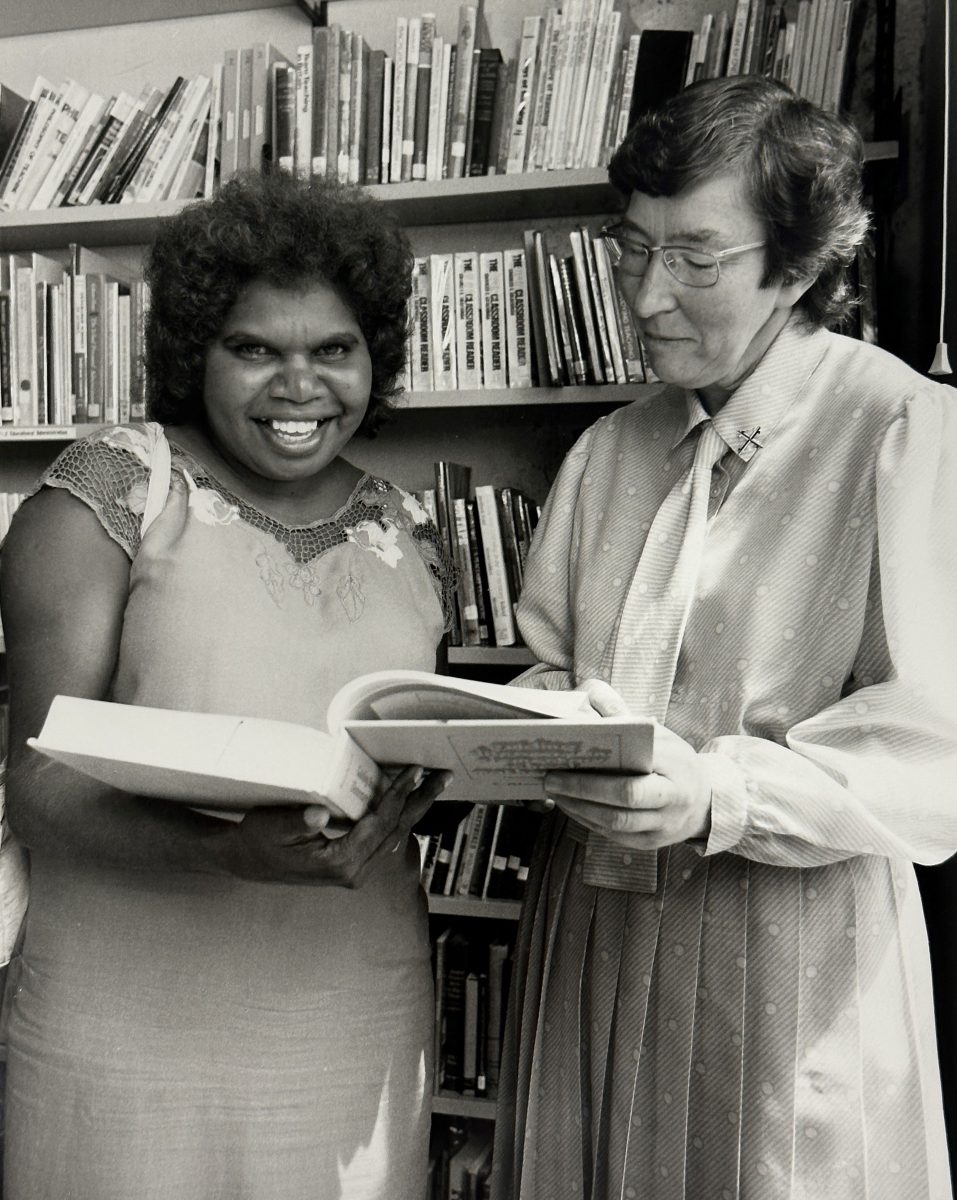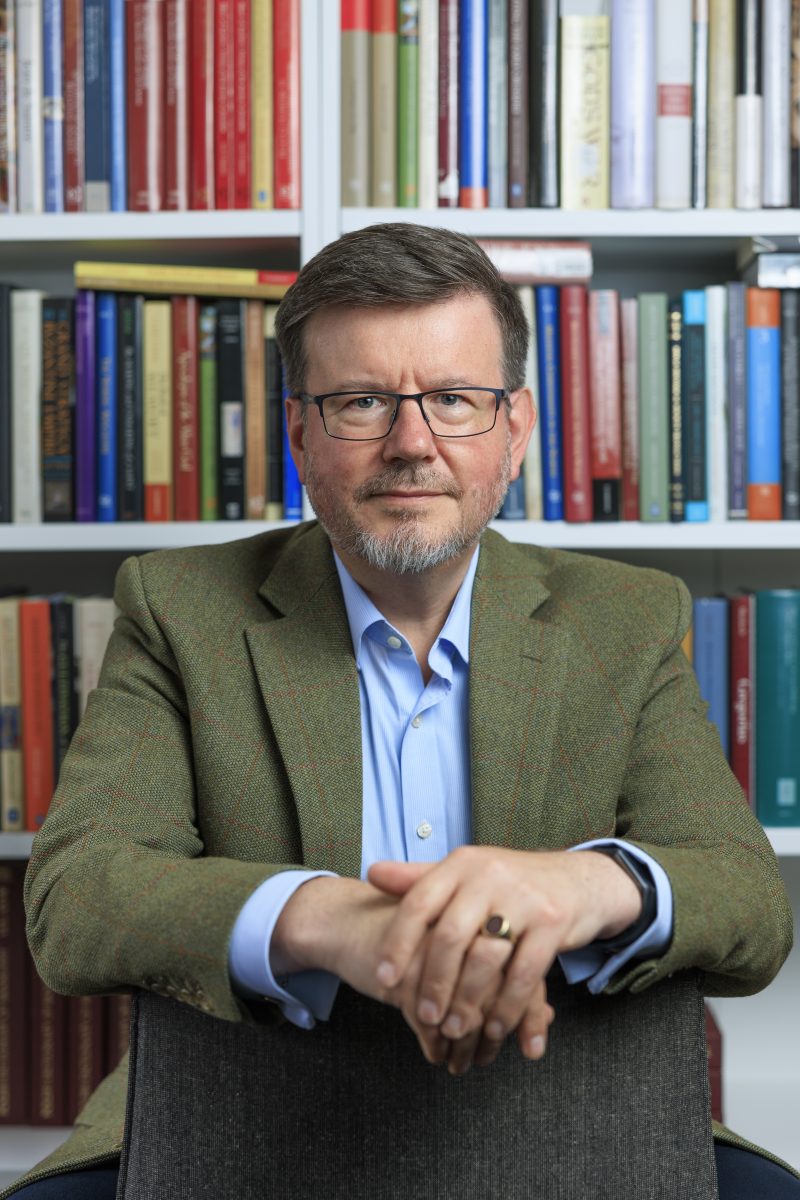
A young Indigenous woman studies with a member of the Dominican order on Canberra’s Signadou campus, the early days of the Australian Catholic University. Photo: Australian Catholic University.
Sixty years ago, at a time when women’s education was far from a priority, a group of Dominican sisters set up camp at a site in Canberra’s north.
It was this commitment for women, by women, that was to shape the foundation of the campus known today as the Australian Catholic University (ACU).
Opened by the then prime minister, Sir Robert Menzies, the first intake at the new educational centre at Watson was 19 students. Today, student numbers have reached about 1200 with campuses not only in Canberra but in NSW, Victoria and Queensland.
Canberra campus dean, Associate Professor Darius von Guttner, said the achievements of the ACU over the past 60 years were a great reason to celebrate.
He said the anniversary was an opportunity to mark the rich history of the Signadou campus and its transformational impact on Canberra’s Inner North, and commit to the future of excellence in education.
The campus was one of four Catholic tertiary institutions that contributed to the creation of ACU in 1991. Over the years, it has expanded to include research institutes and centres, while also offering courses in education and other disciplines, including social work, nursing, paramedicine, midwifery and theology.
Professor von Guttner, an historian, who came to the ACU last year from the University of Melbourne, said in the university’s earliest days, Watson was on the outskirts of town.
“There are some wonderful diaries written by the sisters with stories about shovels being ready to dig the foundations,” he said. “There are photos of them on site from day go. They actually moved on to the site before it was even a campus.
“They also pioneered engagement with First Nations people. When the campus opened, they brought people across from the Kimberley in Western Australia. They would study in Canberra and then go back to their communities to teach there.”
Professor von Guttner came to Australia in the 1980s with his family as an Italian refugee. His grandparents had moved here earlier.
“I didn’t know much about Australia back then,” he said, “except for what my grandparents said in their letters. It was definitely a culture shock.”
But over the years, as he learned and experienced more of Australian culture, it became clear the Dominican sisters were ahead of their time. What they were doing then, he said, was just responding to need. “And that’s what we’re doing now.”
Professor Von Guttner said today’s talk of a critical shortage of nurses and teachers, two of the core subjects at the ACU, was far from new. It was the same when the sisters set up camp to establish the campus.

Canberra campus dean, Associate Professor Darius von Guttner of the Australian Catholic University. Photo: Australian Catholic University.
“We’ve always had this shortage in these professions but it was these women who saw it back then. They recognised the need for a skilled workforce, for women to be able to educate other women in a safe environment.
“It was not just about training teachers for Catholic schools.”
Researching the ACU in the lead-up to the 60th anniversary celebrations, Professor von Guttner said it had been a remarkable story of faith-based values.
He said Catholics “always responded to communities that needed it” despite the fact the Catholic Church had not always been a welcome part of the British Empire.
“It has always been in the forefront of helping others, teaching … these were valued then as much as today.”
It is today the largest provider of teachers and nurses in Australia.
He said one of the proudest achievements for the ACU was its partnership with Vinnies on Pathways programs. The two work with the community to help the homeless, those with nothing and also with people who aspire to go to university but haven’t the means to do so.
The ACU runs a two-year course, jointly funded with Vinnies to help equip interested people in university life.
“ACU is as important today as it was when it started,” Professor von Guttner said. “It retains a Catholic ethos but it accepts students from all works of life.
“As we celebrate this significant occasion, we not only honour the sacrifices of the educational pioneers but also look ahead with great optimism and enthusiasm for the bright future that lies ahead for ACU Canberra.”













